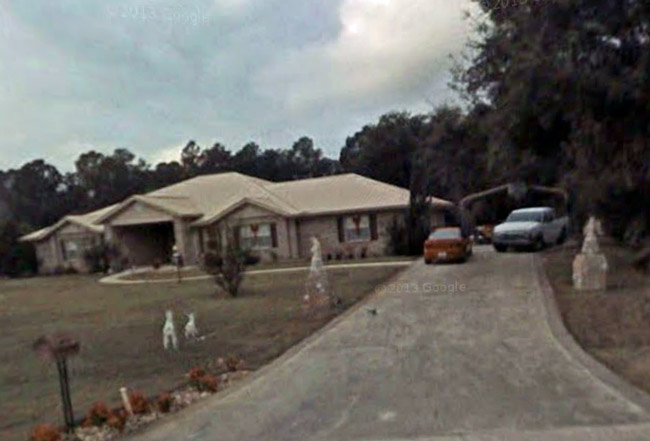
Just this past November Bunnell City Commissioner Jenny Crain-Brady faced public and embarrassing criticism over her residency status. In October, she had sold the house she and her husband had lived ion for many years on Wadsworth Way. She had another property in Bunnell, but she was just then building it for occupancy. Meanwhile, she stayed at a friend’s house in Palm Coast. (She also has property at Palm Terrace, the trailer park where her daughter lives, but Crain-Brady chose not to stay there.)
The commissioner, in two separate meetings,. defended her decisions, and batted away criticism that her Bunnell residency status in any way disqualified her from being a commissioner or running for reelection. (She’s up for reelection in March.)
Fuzzy residency definitions are not a problem isolated to Bunnell.
A pair of state lawmakers announced a proposal Thursday that would tighten the definition of residency for elected officials — but almost immediately conceded the bills might be overhauled to exempt the Legislature. Instead, lawmakers would be subject to a separate joint rule that is being developed by House and Senate leaders.
The bills (HB 495 and SB 602) list 20 criteria that could be used to determine where a candidate or official lives, ranging from where the person claims a homestead exemption to where his or her bank statements are mailed.
“We’ve laid out the criteria, raised the standard and said, ‘It’s not enough to just go rent an apartment and say that’s where you live.’ … Clearly I think what we are proposing is going to be stronger than what we have now,” said House sponsor Ray Rodrigues, R-Estero.
At the same time, the measures don’t specify what the punishment might be or who would be responsible for enforcing the standards. (During the Crain-Brady matter, not only was it unclear whether she had violated residency requirements. It was also unclear whether the Bunnell City Commission had the authority to address the issue, or whether it was a matter that should be left up to the Supervisor of Elections.)
“I believe that there are statutes that address misfeasance, malfeasance in office that this would then fall under in the judicial process,” said Senate sponsor Jack Latvala, R-Clearwater. But Latvala said he would “dig into” the issue more.
Constitutional issues might prevent lawmakers from applying the law to themselves, Latvala said. Under the state’s constitution, each chamber “shall be the sole judge of the qualifications, elections, and returns of its members.” Instead, a proposal issued by Senate President Don Gaetz, R-Niceville, and House Speaker Will Weatherford, R-Wesley Chapel, would deal with legislative residency.
“You’re going to see a joint rule proposed by the speaker and the president in the near future that I believe will be pretty close to this — not exact, but pretty close,” Latvala said.
He brushed off any notion of uncertainty about a revision. “Trust me: I know they’re going to change the rule,” he said.
Latvala said the process for that was pushed ahead Wednesday, when the Legislature’s top lawyers issued a five-page memo sketching out what should legally be called home.
The memo by House and Senate general counsels laid out criteria based on previous court cases and other opinions to help determine whether elected officials can really call their residences home.
Among the factors that could answer the question: “the abandonment of a prior legal residence as evidenced by moving” or selling it; where one has registered as a voter; where one’s spouse and children live, work and attend school; where one receives mail; and a residence where someone claims homestead exemption.
Lawmakers who have pushed for tightening the rules on residency could have stopped with the assurances that it would be addressed for the Legislature, Latvala said.
“But the thought occurs to me that, if it’s good enough for the Legislature to have a process for determining residency for our members, why should all bodies that require people to live in their district at the local level not have some kind of a criteria as well?” he said.
Latvala, who is engaged in a battle for the Senate presidency in the legislative term following the 2016 elections, has been hammering the residency issue for months. He has publicly accused Sen. Maria Sachs, D-Delray Beach, of living outside her district; Sachs defeated one of Latvala’s GOP supporters in the only incumbent-against-incumbent Senate race of the 2012 election cycle.
Sachs has faced questions because the home she and her husband own is outside the District 34 boundaries. Sachs at one time claimed to live in a Fort Lauderdale condo owned by a friend but earlier this year changed her voter registration to a condominium in Delray Beach.
Sachs says her residency has been established by state reviews.
–News Service of Florida and FlaglerLive





























Charles Gardner says
This may be a moot point for Commissioner Brady after the March election.